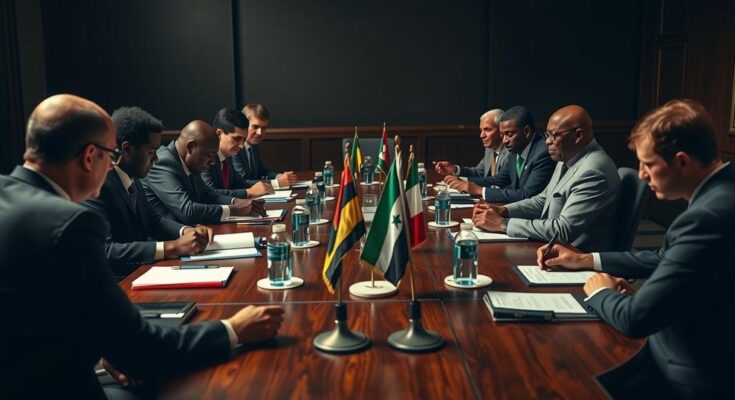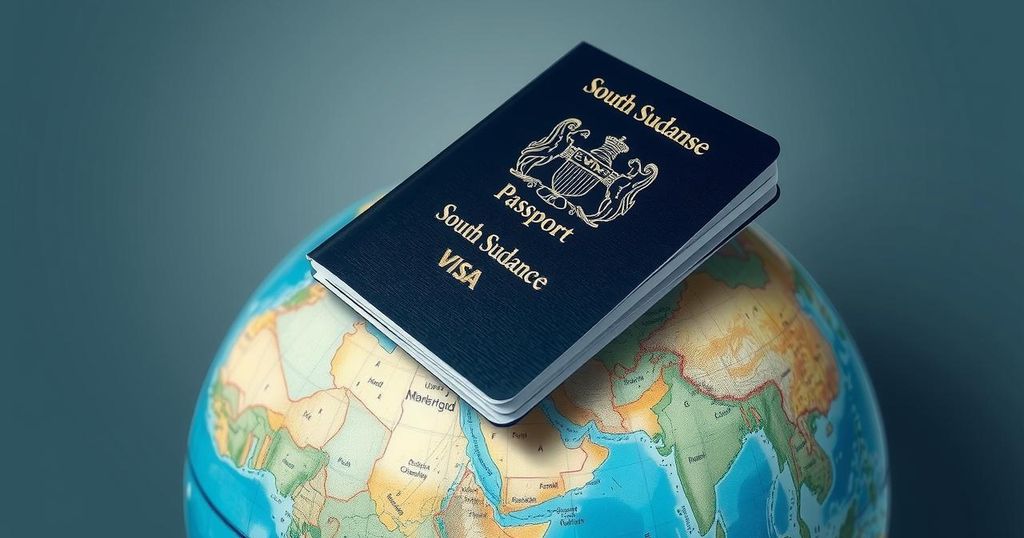South Sudan peace talks have resumed in Kenya after a four-month hiatus and the firing of a government delegation. The negotiations involve the government and opposition groups not part of the 2018 peace agreement. Key issues include potential human rights violations and election postponements due to financial crises. Mediators urge resolution of outstanding matters, emphasizing the need for unity amidst ongoing conflict.
After a prolonged hiatus of four months marked by the dismissal of a government delegation, peace negotiations in South Sudan have recommenced in Kenya. These discussions aim to resolve the enduring conflict that has severely impacted the nation’s economy. The meetings involve the South Sudanese government and various opposition factions excluded from the 2018 peace agreement that concluded a devastating civil war, which resulted in over 400,000 fatalities. Initiated in May under the title “Tumaini,” meaning hope, the talks recently produced a commitment declaration for peace but were interrupted following the government’s changes in delegation.
Despite the 2018 peace accord remaining partially unfulfilled, President Salva Kiir announced the postponement of elections originally scheduled for December 2024, extending them to 2026. This decision arises from ongoing voter registration difficulties exacerbated by a financial crisis that has led to civil servants experiencing prolonged salary delays. Furthermore, problematic oil exports have arisen due to infrastructure damage linked to conflicts in neighboring Sudan. Current negotiations also spotlight a new law allowing detentions without warrants, which the parties claim infringes upon human rights.
As proceedings unfolded, chief mediator Lazarus Sumbeiyo encouraged swift resolution of remaining issues. Pagan Amum, leader of the South Sudan Opposition Movement Alliance, emphasized the necessity for the government delegation to adhere to previous agreements. He remarked on the critical juncture faced by the nation, asserting, “This is not a time to renegotiate what we have already agreed upon — it is important to remember that this is probably the last chance to rescue our country from total disintegration and collapse into chaos and disorder as the fate of South Sudan now is in our hands.” On the government side, Kuol Manyang Juuk urged unity, stating, “We are not here to start the talks from scratch; we are here to build on what has been accomplished.”
The South Sudan peace talks have been ongoing since the civil war concluded with a peace agreement in 2018. However, the implementation of this agreement has faced numerous challenges, leading to ongoing conflict and economic distress. The recent resignation of delegates from the peace talks and changes in government representation indicate the persistent instability and the complex dynamics between the government and various opposition groups. The necessity for dialogue stems from the urgent need to integrate groups not represented in previous agreements, addressing the multiple facets of conflict that continue to affect South Sudan’s trajectory as a nation.
In summary, the recent resumption of peace talks in South Sudan represents a critical effort to address the ongoing conflict and its detrimental effects on the country’s economy and populace. Despite setbacks, including the sacking of delegates and delays in negotiations, key political figures emphasize the urgency of adhering to prior agreements. The future of South Sudan seems reliant on these discussions, which seek to unify differing factions and restore stability within the nation.
Original Source: abcnews.go.com




